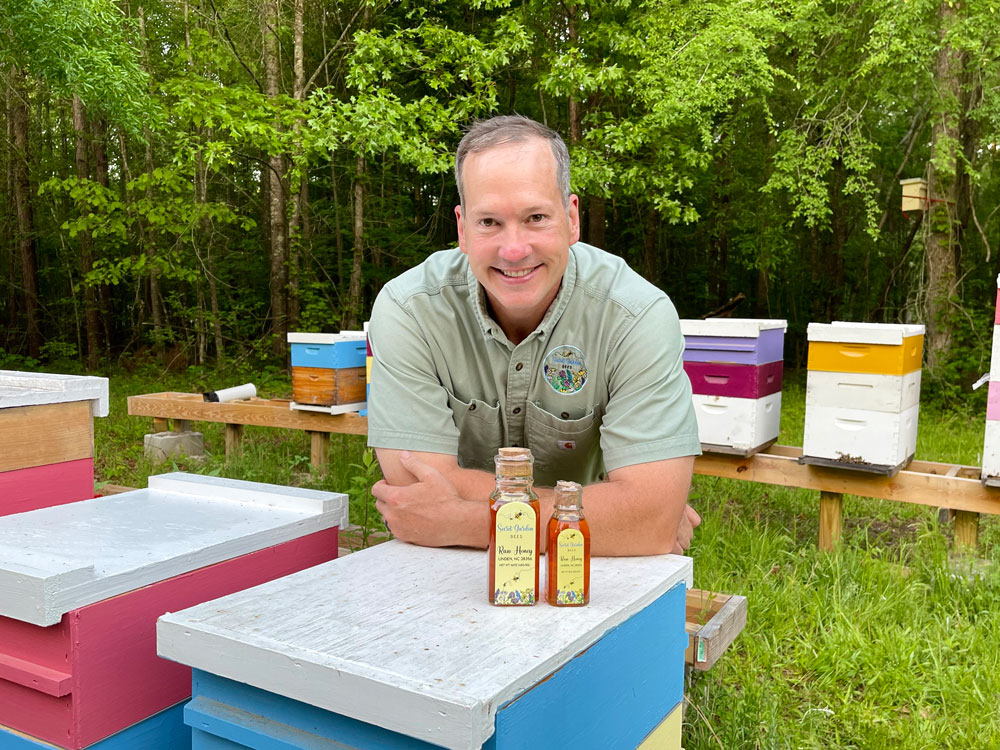Just outside of Fayetteville, North Carolina, veteran farmer Jim Hartman embodies the resilience and resourcefulness of the honeybees he tends to. His success in building his honey business stems from his proactive approach of seeking out government funds, a trait that has been instrumental in his journey.
After a decade in the United States Army, Hartman worked for a large defense contractor for nearly 12 years. However, injuries and PTSD were catching up to the former paratrooper and bomb disposal specialist. Medicines and previous treatments were not working, and that is when a veteran friend recommended that he take up beekeeping as a therapeutic practice.
In 2020, Hartman sold some of his first honey, realized its positive effects on his well-being, and decided to leave the corporate world and enter the world of agriculture.
In true military fashion, he devised a risk assessment matrix and a strategic plan, then leaped into action. This action took the form of carefully calculated and researched methods of uncovering funding that could give his business an advantage. “Eighty percent of your money is made in the paperwork,” said Hartman.
He first contacted the United States Department of Agriculture (USDA) Farm Service Agency, where he was connected with the Emergency Assistance for Livestock Program, which directly helped with his bee-related costs. Next, he contacted the USDA Natural Resources Conservation Service, which helped him fund his wildflower expenses.
“I started looking and realized that if there’s one grant, there’s more,” Hartman said. “I was a dog with a bone on this stuff. It was a treasure hunt.” A turning point that elevated his business was the USDA Rural Development Value-Added Producer Grant that enabled him to make large purchases of supplies at a cost he could afford, allowing him to enter larger markets at a competitive price.
At Secret Garden Bees, Hartman’s 22-acre property, he has built a successful business and a community. He now employs four veterans and is dedicated to sharing the knowledge he has acquired. His commitment to the veteran and beginning farmers community is evident in his work with organizations like the Veteran Farmers of North Carolina, his speaking engagements at the Farmer Veteran Coalition National Meetings, frequent communication with the USDA Military Veterans Agricultural Liaison, and his participation in the North Carolina Rural Rise seminars and his county’s Soldiers to Agriculture program.

